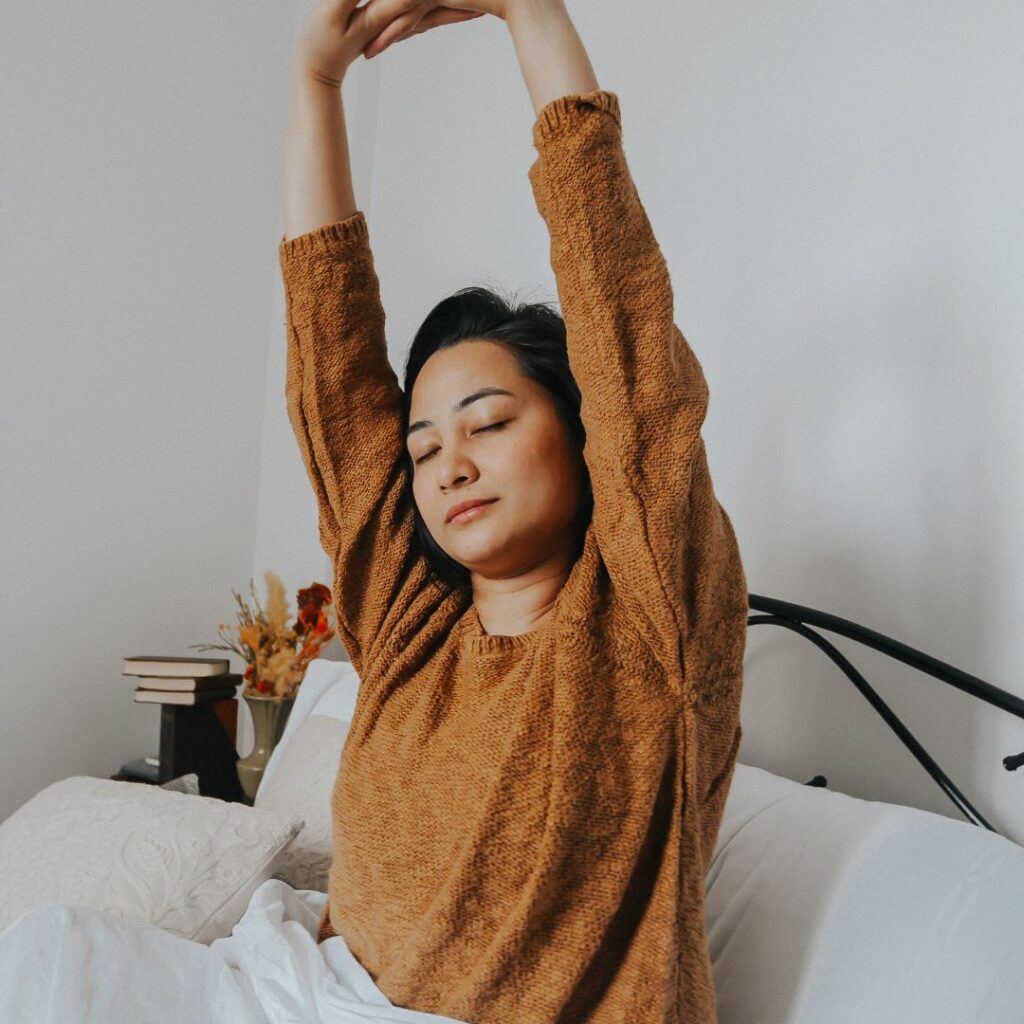What Sleep Really Does to Your Brain
May 14, 2025
(And Why Naps Are Kind of Magic)
Let’s get real—most of us are walking around sleep-deprived and pretending we’re fine. But here’s the wild part: we’re actually terrible at knowing just how affected we are by chronic sleep loss. Like, really bad at it.

Sure, you’ll notice if you pull an all-nighter and feel like a zombie the next day. But when you’re slowly cutting corners on sleep—getting six hours here, five and a half there—you probably feel like you’re doing okay. Meanwhile, your brain is waving a white flag.
The Sneaky Impact of Sleep Restriction
Studies have shown that people who consistently spend less time sleeping than they need end up with serious drops in focus and cognitive performance, but still rate themselves as “moderately sleepy.” That’s like failing a test and thinking you crushed it. Not ideal.
We think we’re doing fine, but over time, this kind of sleep restriction adds up. People underestimate how sleepy they actually are and overestimate how well they’re functioning. Which, spoiler alert, is a dangerous combo—especially when we’re doing things that require focus (like driving or making decisions that actually affect our lives).
(We all know how important sleeping is. That’s not news. The real question is: why is it so hard to get enough of it?
👉 I dive deeper into this in my podcast episode with Caitlin Shure, where we explore what actually helps you sleep better—and what quietly ruins it.)
Anxiety and Sleep: The Not-So-Fun Feedback Loop
Here’s where things get really interesting. Poor sleep and anxiety go hand in hand, and it’s not always clear which comes first. But research is showing that sleep issues can actually predict the development of anxiety—especially generalized anxiety disorder (GAD).
Basically, when you’re sleep-deprived, the parts of your brain responsible for regulating emotions (like your prefrontal cortex) don’t communicate as well with the more reactive parts (like your amygdala). That means it becomes harder to manage negative thoughts, stop ruminating, or regulate emotional responses.
Think of it like your brain’s inner CEO calling in sick—suddenly the chaos department takes over. And if you already struggle with anxiety, poor sleep only makes it worse.
Chronic Sleep Loss Actually Changes Your Brain (Yep.)
This part blew my mind. Chronic short sleep doesn’t just mess with your mood or focus—it can literally damage neurons, especially in parts of the brain involved in attention and alertness, like the locus coeruleus.
Some studies even show that this damage might not be reversible, and that it mimics what we see in aging brains. (So, sleep deprivation might be aging your brain faster. No thanks.)
Sleep loss has also been linked to reduced neurogenesis (aka the growth of new neurons), especially in the hippocampus, which is crucial for learning and memory. And in some studies, it’s been shown to reduce brain volume in regions like the thalamus. 😳
What About Long-Term Risk?
Okay, let’s talk Alzheimer’s. Sleep disturbances, especially untreated ones like sleep apnea, have been linked to a higher risk of developing Alzheimer’s disease. Why? Because sleep is when your brain clears out toxic proteins like amyloid-beta and tau. Without enough rest, these proteins build up, and that buildup is associated with cognitive decline and neurodegeneration.
In fact, just one night of sleep deprivation has been shown to spike tau levels in the brain. So if sleep is when your brain takes out the trash, skipping it is like letting garbage pile up in your living room.
Insomnia Isn’t Just a Nighttime Problem
Insomnia affects 10–15% of the population and can last for years. Beyond the obvious frustration of lying awake at night, it impacts work performance, relationships, emotional regulation, and overall quality of life. It’s even been linked to a higher risk of depression and anxiety. And while we’re still debating whether insomnia causes depression or vice versa, the evidence shows insomnia often comes first.
That’s why treating sleep issues early is so important—it’s not just about rest; it’s about preventing more serious mental health struggles down the road.
Okay, Let’s Talk About Naps
Now for some good news: naps aren’t just for toddlers—they’re brain gold.
A study out of Harvard showed that people who took a 1.5-hour nap after learning a maze retained what they learned, while the people who stayed awake actually got worse at it. Plus, the amount of deep sleep (aka delta waves) they got during that nap was directly linked to how well they performed. So yes, that “just a quick nap” might actually help you learn and remember better.
And get this—a study found that the ideal nap length is 10 minutes. Yup, not 20, not 30. Ten. Anything longer tends to lead to “sleep inertia”—that foggy, groggy, what-year-is-it feeling.
So if you’re hitting that mid-afternoon slump, set a timer for 10 minutes, close your eyes, and let your brain reset.
TL;DR – Sleep Is Not a Luxury
It’s a non-negotiable if you want your brain and body to thrive. Chronic sleep loss can mess with your emotions, your memory, your focus, your long-term health, and even your ability to regulate stress and anxiety.
So what can you do?
- Prioritize sleep like you would a doctor’s appointment.
- Don’t trust your sleepy self—if you’re tired, rest.
- Get help if sleep is a consistent struggle.
- And nap smart—10 minutes is your sweet spot.
Your brain will thank you. 🧠💤
Want help redesigning your life to prioritize your mental and physical health? Let’s chat.
[…] and development.(Still think you are getting enough sleep? You might want to think again. Check out this post for […]